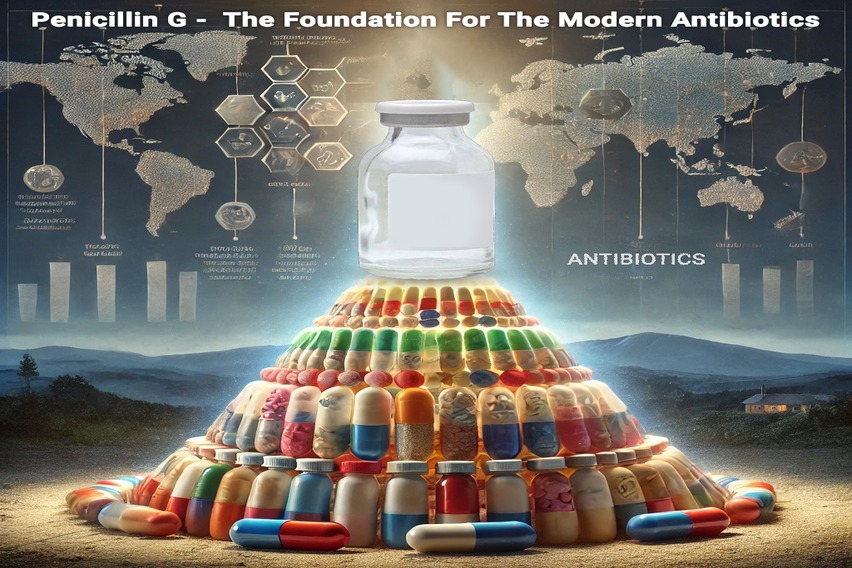SUSTAINABILITY AND GREEN MANUFACTURING

Sustainability And Green Manufacturing
As the world grapples with the pressing challenges of climate change and environmental degradation,
industries worldwide are reevaluating their practices to align with sustainability goals.
India is known as “Pharmacy to the World” and its pharmaceutical industry stands as a beacon of innovation, growth and development.
Along with low cost and high-quality medicines, India has often been a leader in areas like manufacturing of generic drugs, over the counter medications, bulk drugs, vaccines, contract research and manufacturing, biosimilars and biologics.
Pharmaceutical companies have a major environmental impact in terms of waste disposal, CO2 emissions, plastic usage, air pollution and water and energy consumption. Indian pharma sector has a far reaching economic and technological impact. Considering this fact, Indian pharma sector adapting to sustainable and green manufacturing can bring a major impact on the environmental health globally.
Indian pharmaceutical companies have already adopted the concept of sustainability and green manufacturing by incorporating sustainability models that focus on renewable energy. They’ve reduced their carbon footprint, increased water neutrality and also reduced the waste created during and after the manufacturing process.
But sustainability is a long-term approach that benefits both the health of the population as well as the environment. If every pharma company starts incorporating sustainability into every aspect of their operations, they can secure a healthier, more equitable and more prosperous future for all.
Along with adopting to environmental responsible practices, Sustainability in pharma encompasses the entire product lifecycle, from drug development to disposal and aims to ensure that medicines are accessible, affordable and sustainable for all populations.
Quality Management System (QMS) plays a crucial role in ensuring sustainable practices are incorporated in the pharmaceutical practices.
It plans, implements, checks and acts continuously to meet environmental regulations and standards, optimize research, optimize development methods and production processes to improve sustainability.
Pharmaceuticals have a complicated effect on the environment. The industry can significantly reduce its environmental footprint by adopting renewable energy sources, optimising manufacturing processes, employing recyclable packaging and promoting responsible disposal practices.
Key Strategies for Sustainable practices:
1. Energy Efficiency:
Pharmaceutical manufacturing is energy intensive. Companies are now investing in energy efficient technologies and processes like cogeneration system that can simultaneously produce electricity and useful heat from the same energy source. There is a notable shift towards renewable energy sources like solar and wind power. This will help the companies reduce their carbon footprint.
2. Sustainable Manufacturing:
Pharmaceutical companies have started implementing green chemistry principles, reducing reliance on hazardous materials and promoting cleaner production methods. Companies are also exploring ways to reuse and recycle solvents and other resources.
3. Water Conservation:
Water is a critical resource in pharmaceutical manufacturing. Companies have started adopting advanced water conservation techniques
such as zero liquid discharge (ZLD) system that ensures all wastewater is treated and reused. Rainwater harvesting and efficient water management systems are also implemented to reduce freshwater usage and minimize wastewater discharge.
4. Waste Management:
Pharmaceutical companies generate a variety of wastes that includes hazardous chemical waste and that’s why companies have started adopting waste minimization strategies like use of biodegradable materials in packaging, exploring circular economy principles to reuse and recycle waste generated throughout the production cycle, recycling of solvents and utilising green chemistry for safer chemical processes,
5. Sustainable supply chains:
Pharmaceutical companies are working with suppliers to ensure environmentally friendly practices are adopted throughout the product lifecycle which includes use of sustainable raw materials, eco-friendly packaging and transportation methods that reduce carbon emissions.
6. Regulatory Compliances and certifications:
Adhering to national and international environmental standards is crucial. Companies are obtaining certificates such as ISO 14001 for environmental management and are also adopting guidelines provided by World Health Organisation (WHO) for good manufacturing practices. Compliance not only ensures reduced environmental impact but also enhances the company’s reputation and marketability.
Case studies:
1. Dr. Reddy’s Laboratories:
The company has made a significant progress in energy efficiency and water conservation, reducing its greenhouse gas emissions and achieving substantial water savings through innovative practices. Their goal is to be 100% renewable power by 2030, Carbon neutrality in their direct operations (Scope 1 and Scope 2 emissions) by 2030, 12.5% reduction in indirect carbon emissions across our supply chain (scope 3 emissions) by 2030 and be water positive by 2030
2. Cipla:
The company is known for its comprehensive sustainability strategy. Cipla has implemented a range of green initiatives like renewable
energy projects and efficient waste management systems that help them save 60 million litres of water and 38 million Kwh of energy, reducing its carbon footprint by 70,000 tonnes. By 2030, Cipla endeavours to be carbon positive, water positive and zero waste to landfill.
3. Sun Pharma:
This company has become a signatory to the United Nations Global Compact (UNGC), one of the largest corporate sustainability initiatives globally. Along with new initiatives, they continue to allocate higher resources and make progress on their ongoing plans to reduce their environmental footprint by implementing various energy and water reduction projects, increasing the share of renewable energy in their overall energy mix and focusing on sustainable waste management. The transition of India Pharmaceutical industry to sustainable and green manufacturing is challenging. Governments support through favourable policies, incentives for green initiatives and stringent environmental regulations can accelerate the transition. High initial investment costs, technological barriers and the need for skilled workforce are going to be significant hurdles but in the long run it has benefits like cost saving, enhanced regulatory compliance, improved public image and most importantly, a healthy planet.
Collaboration among industry stakeholders, academic institutions and technology providers will foster innovation and drive sustainable practices.
The journey towards a sustainability in the pharmaceutical industry is a collective responsibility. By integrating sustainability into the
core of their operations, Indian pharmaceutical companies can pave the way for a greener, healthier future, setting a global benchmark in
responsible manufacturing. Let’s champion these efforts and work towards a sustainable future for all.



